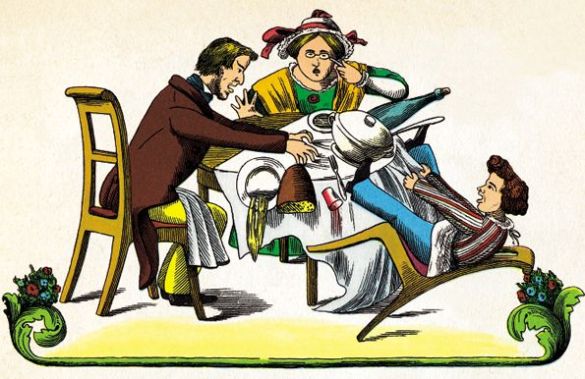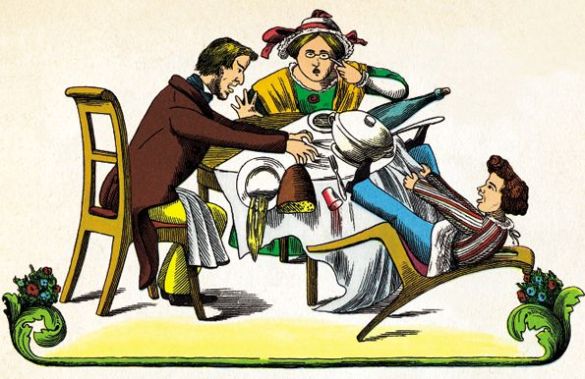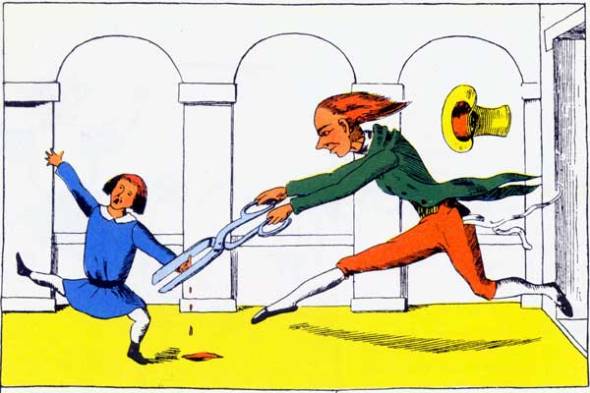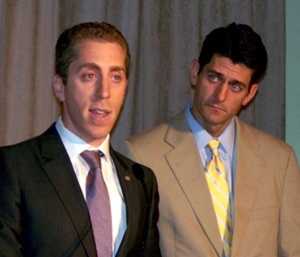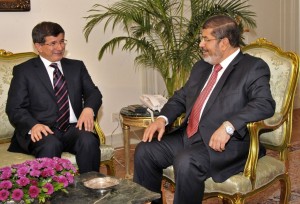Recently, in a public statement Deputy PM Arinc said ‘if we (AKP) were to leave (power), the next government wouldn’t be able to pay salaries within three months’. It was an implicit threat to the public to vote for AKP if they want to keep an economic crisis at bay because ‘AKP knows how to manage the economy’. The Deputy PM’s statement is probably true; not because AKP is good at macroeconomics while others are not but because others do not know how to manage the economy that PM Erdogan created and AKP supported. Erdogan has created a beast that only Erdogan can control. And without him Turkey is bound to get into another crisis. Turkey is a typical example of an unstable equilibrium; think of a pencil that is standing on its sharpened edge. It is in equilibrium (standing straight) but extremely unstable. That sharpened edge is Erdogan and…
View original post 1,273 more words
Proposed Title: How ‘Click-Bait’ News Keeps Us Uninformed:
Author: Lewis King, Istanbul 26.02.2014
Contact: lewisjkingop@gmail.com
Bio: Lewis King is an Istanbul based graduate student, writer, and researcher at the MiReKoc Migration Research Center.
If my Facebook news feed these days is any indication, it seems that society is growing more cognizant of world events than they were a decade ago. Sometime around the ‘Arab Spring’ it became common place to turn to social media for news and analysis. A slew of headlines heralded the, “Twitter Revolution” and the rise of, “Facebook Activists.” I certainly don’t recall my Myspace page featuring stories about Palestine, Egypt and Venezuela as is the case with Facebook, Twitter and Reddit these days. And while the jury is still out over whether or not this glut of information generates any sort of mobilization among international readers, we none the less have an unprecedented amount of information at our fingertips.
But rather than creating an informed audience, readers are exposed to a growing and disturbing new brand of journalism that pilfers research on complex stories and then summarizes it into precise, consumable ‘click-bait’ bullet points. Not only do these journalistic parasites obliterate the nuances of the stories they co-opt, their format precludes locating the information within the context of the event. Instead, they sensationalize the topic and then substantiate their case with a list of numbered facts gleaned from other, in-depth reports.
What makes this trend even more worrisome is that new-media sites are creating an audience that understands politics and society as a series of lists, and black and white truths. But the world is not reducible to these lists and binaries, and such expectations could cripple civil society and further dumb-down political and social discourse.
While an informative news story provides background, context, and analysis, click-bait stories provide little in this regard. In fact, by masquerading as ‘news coverage’ these articles misinform readers as to the real nature of the events they claim to cover. Consider the coverage of two stories recently featured on buzzfeed.com that purport to deal with complex stories.
The first article, “Everything You Need to Know about Kiev’s Brutal Protest Standoff” weighs in at a paltry 1000 words. The article, in spite of its brevity, claims to cover, “everything you need to know” about the recent events in Ukraine. The writers at buzzfeed.com are either delusional or deliberately misinforming their readers for traffic and advertising revenue. And when scores of protesters and police are dying in the streets, this callous manipulation of the truth is unconscionable.
Not content with deliberately misleading its audience, buzzfeed.com wastes an opportunity to inform, by concentrating on the aesthetics of the social upheaval in Ukraine rather than the facts. The opening paragraph is almost entirely dedicated to what the protesters were wearing, their improvised weapons, and the medieval and brutal nature of the violence.
At no point in the story does the author mention the intransigence of the EU negotiators, Ukrainian cultural and linguistic diversity, the complex economic ties between Russia and Eastern Ukraine, Cold War institutions and continued contestation for spheres of influence, or the high levels of poverty and underdevelopment in many parts of the country, to name a few topics that warrant more ink than the sartorial disposition of the protesters. Readers that take the articles title at face value will walk away ignorant about the complexities of the situation, despite believing otherwise.
The next featured story, also posted in their ‘world news’ section concerns another complex current event that is rooted in a long and costly history: the isolated and despotic regime of Kim Jong-Un and his predecessors. This story provides even less coverage than the previous example. In fact, it merely features a satellite picture of North and South Korea that shows how underdeveloped (and therefore unlit) the northern half of the Korean peninsula is.
Entirely absent from the article is any explanation for this remarkable disparity. In other words, readers will remain uninformed about the Korean War, China’s role in propping up the dictatorship, American military presence in the region, and the intense hostility between the states, to name just a few important dynamics of the story. Just as bad, this story will inform them in the voting booth to the extent that American foreign policy affects their voting choices.
This cursory presentation and lack of analysis is part of a worrying trend in the coverage of major news stories. The recent $30 million acquisition by Yahoo.com of Summly, an app that condenses news stories into a single sentence shows that investors are betting on the diminishing attention spans of readers. Meanwhile, across the world, news bureaus continue to downsize as the risks associated with the trade increase. And much to my chagrin, the conversations that I have with friends about Venezuela, and my inability to contribute in a meaningful way are just as telling. These discussions show how effectively these new-media sources have penetrated our collective consciousness.
Over drinks a few days ago, I found myself regurgitating the events in Caracas as they appeared in my social media news-feed. I realized I was re-creating a binary where an educated and globally oriented group was struggling for a voice against an autocratic and isolated leader that was violently suppressing them, while ignoring Maduro’s strong support amongst Venezuela’s poorest who had been marginalized for decades prior to Chavez. But I knew all about the motorcycles, armed thugs and whatever else it was that made for a memorable headline or a catchy you-tube video.
But what I wasn’t talking about was Venezuela’s history of colonialism and clientelism, a brutal and unequal appropriation of natural resources by American backed elites and multinationals, and the implementation of racist ‘Jim Crow’ laws by US mining and oil firms in Venezuela as they plundered natural resources and displaced native populations, all of which have influenced the socio-political landscape of modern day Venezuela and shaped the conflict playing out on our Facebook feeds. This was because sensational, “Pics of What’s Happening in Venezuela,” stories provide me with no introduction or context to build on.
These truncated ‘click-bait’ stories allow us to talk about important events without understanding them. If the role of the media is to inform the public, then the rise of click-bait news sites is a step backward. Rather than raising our cognizance of our ignorance, these news sites lull us into a sense of false awareness by implying that a grasp of disconnected facts means we understand the stories we read. And thus, our ‘informed decisions’ are actually just the opposite. Rather than engendering informed debate, our discourse is now based on a slew of decontextualized facts that leave us unable to empathize with, and understand, the real people in the stories whose experiences are being turned into entertainment and revenue.
So when the buzzfeed.com online personality test tells me that I most closely resemble the Disney princess Rapunzel because I am scared of losing my job, I am rightfully skeptical. And when they tell you that you know everything about the riots in Ukraine, I suggest you do the same. And if I somehow still have your attention, get down to the gut churning rhythms and bass lines of Maynard Ferguson right here (RIP).
Originally posted on yabangee.com: Death is lurking, and able to strike trepidation into the hearts of the most sanguine of us wherever and however we live. Istanbul is no exception, with the specter of death lurking behind every careening Dolmush and each raging hangover. We scrutinize each apartment we enter, examining every architectural defect as we speculate exactly how we will be crushed to death when ‘that inevitable whopper’ of an earth quake strikes. I have yet to meet an actual passenger of the new subway line that runs under the Bosporus but I have met plenty of ‘experts’ who have explained in detail how seismic tremors would collapse the tunnel and any unfortunate passengers under millions of tons of cold, black sea water. As ‘shadow organizations’ and interest groups turn us into their hapless pawns and tectonic plates grind against each other beneath our feet, we have every reason to be paranoid.
And to this list we add another grim reminder of our imminent demise: the hilariously dark cautionary video that is shown throughout the Istanbul Metro system. It’s prominent positioning for years means that a significant percentage of Istanbul’s 175 million annual riders have watched this video, making it one of the most recognizable pieces of modern Turkish cinematography! Yet it receives remarkably little attention.
Not content with quickly terminating the unfortunate stiff featured in the film as he foolishly attempts to retrieve his phone from the track, the artists behind this video slow down the action to capture each harrowing moment. Upon contact with the tracks, our unfortunate sap is stunned by the electricity, as is his accomplice. As the current shoots through their bodies, their teeth grit together and their bodies snap to rigid attention, the current is so strong that their bones glow. Next, a high speed metro careens into the station, presumably crushing these two unfortunate schmucks, but the animators mercifully freeze the action right before impact and insert a warning instead.
You can unclench, the worst is over, but the message is very effective. What makes the short animation so engaging is how cartoonish yet unflinching the representation is. It also effectively allows the municipality to convey the danger posed by oncoming trains in a way that won’t traumatize passengers (too much). Moreover, the cautionary tale is a modern adaptation of a rich and storied tradition of socializing children with grim tales of warning; ‘shock and awe’ in the nursery if you will.
The gory origins of the western cannon of nursery rhymes and fairy tales are well known. Our empathy for Hansel and Gretel overrides the fact that they incinerated an old lady. We choose between infanticide and elder abuse/murder in favor of the latter. These stories condition us for a future when we will be required to make relative value judgments at the expense of others. But the metro cartoon sends a more focused message: ‘watch out or you will die a horrible death’ with a less pronounced, ‘save yourself first.’
Messages like these keep us from sticking forks into electrical sockets. When I was 7, one of the upper classmen told me that if I played with stray dogs, I would get rabies, and that the elementary school principle would tie me down onto a board and inject the antidote into my butt with a massive needle every day for a month (he held his hands apart to show me just how long the needle would be). I never played with strays from then on, and have yet to die of rabies, so presumably these tactics work. Thanks for saving my life Peter Winter, wherever you are!
When we realize that hundreds of hours of our childhoods were spent being entertained by tales of murder, infanticide, rape, cannibalism and incest it explains our infatuation with shows like ‘Game of Thrones’ as well as the effectiveness of the Istanbul Metro’s warning. I have yet to hear of a passenger being run over by the subway here.
The Germans excelled in this art as well, with one illustrated series, ‘Struwwelpeter’ (pronounced “strooble-payter”) traumatizing generations of children around the world. Struwwelpeter exposed children to a grim Calvinist worldview where childish deviance inevitably led to horrible and painful disfigurement, amputation and death. Each cautionary tale was illustrated in graphic detail and body parts flew and mischievous children were reduced to ashes. If Weber was right about a ‘protestant ethic’ the author and illustrator of these tales, Heinrich Hoffman certainly had a hand in its creation or propagation. Even more worrisome is the fact that Hoffman wrote the books for his three year old son, who likely went on to torture small animals and dabble in fascism.
Turkish children’s literature is only marginally less callous in its treatment of childhood innocence. In one story told to children, a murderous wolf is finally trapped in a pit by the other woodland creatures. The trapped wolf pleads for mercy but the passing animals ignore its pleas, knowing full well that leniency would only lead to a continuation of the wolf’s reign of terror. This continues until a donkey is swayed by the wolf’s appeals. The ass reaches down to the trapped wolf whereupon the wolf pulls it into the pit, kills and consumes the beast and uses its bones to build a ladder and resumes the slaughter. The message is unflinchingly realist and necessarily steels children for Turkey’s competitive education and job market, but the more one focuses on the details the more morbid the story becomes. Wolves will always be what they are, and actions have very real consequences. This includes irresponsible behavior on the metro platform.
So next time you find yourself on the M2 as it plies between Sariyer and Taksim, take a moment to appreciate the homage to a bizarre and under appreciated branch of artistic expression. And when your phone flips from your hands, do not crawl onto the tracks to retrieve it.
Erdogan’s ability to re-structure Turkish Islamic politics and avoid the failures that doomed his predecessors demonstrated not only his political acumen but also his grasp of history. More recently, the experiences of Morsi and the Muslim Brotherhood in Egypt bolstered his belief and those of many others that Islamist politicians throughout the region will continue to face stiff resistance from entrenched secular actors, and a circumspect western audience. For these reasons, the failure of Erdogan and his Justice and Development Party (AKP) to effectively manage their image abroad demonstrates a serious lack of foresight that may be costly. While Erdogan was remarkably successful in the domestic media market, he finds himself with few international allies and as a result, he is internationally perceived as a ‘thug’ and a ‘dictator’. And while these labels are largely grounded in reality, what is remarkable is the absence of any meaningful defense aimed at western media markets.
The prime minister’s attitude towards diplomacy is well known. Not only has he repeatedly stated his dislike for diplomats in general, his embarrassing behavior at Davos in 2009 illustrated his inability to parse between domestic and international politics. While cheap political strategies like anti-Semitism may win votes in central Anatolia, such outbursts wear on Turkey’s image abroad. His continued use of similar rhetoric in the months following the Gezi Park protests has only increased the misgivings of his global audience.
Meanwhile, the Turkish government deploys Mr. Davutoglu, its foreign minister, to do damage control in the wake of the Prime Minister’s forays abroad. When Erdogan visited the Balkans and delivered a speech that fanned the flames of sectarianism in a region still recovering from a horrific sectarian civil war, it was Davutoglu who was rushed in to put out the fires and clarify that the Prime Minister didn’t actually mean what he said. Months later Erdogan was at it again, this time accusing Israel if internal meddling. Later he directed his ire at the United States, threatening the expulsion of the ambassador, Francis Ricciardone and once again the Turkish Ministry of Foreign affairs went into overdrive.
As one debacle after another drew negative attention to Turkey and its leading politician, the absence of a strategic public relations effort grew more apparent. Erdogan’s foreign image crisis is neither unique nor unanticipated. Other semi-authoritarian states find their image suffering for a multiplicity of reasons, and many like Turkey, are tied to their style of governance. It is for this reason that governments like Russia and Qatar invest hundreds of millions of dollars in media companies that are beholden to their leadership that can be relied on to counter negative publicity abroad and promote a positive image. These media organizations are usually the premier foreign language source of information in the country as is the case with RT in Russia and Al-Jazeera in Qatar. How successful these efforts are is a matter of debate, but their presence shows a certain savvy that seems to be lacking in the Turkish case. Even countries that skew more democratic and liberal make use of media projects that target foreign audiences as a soft-power technique. Voice of America and the BBC are to examples of this.
The one accessible pro-AKP English language paper in Turkey, Sabah was taken over by businessmen close to Erdogan but its English language arm (targeting non-Turks) is anemic. Online, Sabah is drowned out by other news sources that experience significantly higher traffic. While the Turkish government does make an effort to network with Turkish émigrés and at times uses them to promote Turkish causes, these efforts are minimal and nowhere on the scale necessary to affect international opinion. The Foreign Ministry meanwhile, serves a diplomatic mission that also has little to do with broad international public perceptions. Therefore, western audiences are forced to look elsewhere for stories on Turkey and here is where the picture gets even grimmer for Erdogan and his allies.
The most widely read English language newspaper in Turkey is the Daily Zamaan followed by the Hurriyet Daily News, which comes in a distant second. Neither of these papers is sympathetic towards the Erdogan regime. In fact, the Zamaan is downright hostile and the Hurriyet is only slightly more tactful in its promotion of a western looking secularism that is opposed to Erdogan’s brand of political Islam. In other words, both extremes of the political spectrum present the same negative picture, in English.
In the current schism that is turning into a political civil war between what was once a united Islamic front, the Zamaan is the rebel faction that the prime minister has accused of treason. Under these circumstances the Zamaan represents a propaganda boon for the Gulen Movement which is pitted against the AKP in the ongoing corruption scandals. For Erdogan, having the country’s largest English language news source dedicated to removing him from power represents a serious threat. The Hurriyet Daily News, which is delivered to foreign embassies across the country and widely read amongst expatriates, carries a similar tone making the English language media landscape overwhelmingly hostile towards Erdogan. Anyone who conducts the classic, ‘Erdogan is…’ Google test will realize just how much his international reputation has suffered recently. It is no wonder that he has taken to repeatedly lambasting these same organizations in his speeches.
In the area of informal medias, the picture is the same. While the AKP assembled a social media branch to counter negative publicity on the internet, its focus was primarily domestic. During the Gezi Park protests, the volume of twitter traffic relating to the event was overwhelmingly in favor of the protestors. Given transnational nature of such media, it is far more likely that foreign inquiry would have come into contact with anti-government content than pro-government. Later, when the prime minister castigated Twitter and Facebook, it further eroded his image abroad.
Erdogan’s political adversaries are also better at managing their reputations as the recent opening of the CHP offices (the main opposition party) in Washington DC demonstrate. In addition, the CHP were able to capitalize on the international coverage of Gezi Park by presenting themselves as the liberal democratic alternative.
Ultimately, all this may not matter to Erdogan, especially if his party maintains its electoral gains in the elections this March and he is able to continue consolidating power. It may be his eschewal of diplomacy and image management in favor of conservative rhetoric and power politics that endears him to his constituency. But that is a tenuous assumption, especially as foreign direct investment moves elsewhere along with investors’ confidence. In the end, Turks, like everyone else, vote with their pocket books as do investors and the international economy.
Why is America ‘pulling out’ of the Middle East? According to our recent Business Insider op-ed, changing global energy markets and shifting balances of power are driving this development, but according to Joel Pollak of Breitbart.com, the answer is more straightforward. Pollak argues that Obama’s commitment to a ‘humble America’ and his Anti-Israel agenda are to blame. Our interpretation differs dramatically from his and so, in the next few paragraphs we will show that Pollak’s analysis is an example of the outdated Middle Eastern paradigm we aim to abolish.
We agree with Pollak that Obama was determined to withdraw from the Middle East but he misinterprets our main thesis which was that the region no longer warrants the attention it did twenty years ago and that tying up limited military and diplomatic resources in the region no longer makes sense from a foreign policy perspective. Nowhere in our article did we claim that the United States was becoming less dependent on Middle Eastern oil as he alleges. Our argument was based on global energy markets which are diversifying. American policy is doing likewise.
The notion that Obama’s resistance to domestic shale oil extraction implies that shale oil does not factor into foreign policy makes even less sense. What matters is that this new source of energy has upended the global market and reduced the overall importance of Middle East oil. Where the oil comes from and Democratic resistance to the inevitable environmental damage of shale oil does not matter as Pollak argues.
We also never make the argument that the Unites States has entirely withdrawn from the Middle East. When Pollak argues that American pressure on Israel over the Palestine issue somehow refutes our position, his claim ignores both Turkey and Saudi Arabia which were the crux of our argument. If anything, the argument could be made that pressuring Israel represents a decrease in American support, and an alignment with a widely held global condemnation of Israeli policy regarding illegal settlements in Palestinian territories. Moreover, Obama’s pressure is at best rhetorical. In short, the evidence Pollak presents fails to prove anything.
In a final fit of cold war era paranoia, Pollak worries that American withdrawal from the Middle East will allow the Russians to project power into the region. He writes this as Russia’s self-destructive foreign policy is being soundly rejected by millions of pro-European protestors in Ukraine, a country right next door and the crown jewel in their sphere of influence. Moreover, selling soviet era weaponry to unpopular despots in Syria and Egypt over fears that mass unrest will soon spread to their own restive Muslim populations does not constitute a threat to American hegemony. It is unfortunate that Pollak is more concerned with attacking Obama than presenting an alternative explanation and it shows.
I am writing my thesis on an irrelevant subject in a school that no one has ever heard of, and I have lost whatever it is that allows people to feel that they have an objective grasp on what happens around them. Facebook is my window to the world. I guess it’s no worse than turning on the television. When the alternatives are noxious sycophants and water carriers for corporate interests and the politicians that serve them, my delusional ‘new-left’ liberal friends are a refreshing change. Sometimes however, even these well-meaning mediators plow so deeply into the absurd that I have to step away from my computer, face-palm and remember that sometimes we fall so far down the rabbit hole, we don’t realize that there is an enormous caterpillar blowing smoke in our faces. Let me explain.
Three things happened this week of note. First, it snowed across the Middle East, from Istanbul to Cairo where the last snowfall was 112 years ago. If it’s global warming, shit; if not that’s really cool. Second, Macklemore brought his brand of mediocre family friendly rap to the Key Arena in Seattle where it was captured in excruciating detail on tens of thousands of smart phones and vomited onto my Facebook news feed. Thanks guys. That grainy, shaky footage made me feel like I was there myself. Across town, actual musicians played to empty clubs. Mark my words; ten years from now, this slightly whiter reincarnation of Big Willy Style without the infectious beats will be relegated to that shameful history of mainstream music where bands like Stained, Nickleback and Vanilla Ice are buried. But that has nothing to do with the main purpose of this screed and it’s a testament to my poor writing that it only gets some ink in the third paragraph.
Nelson Mandela expired and Facebook was full of trite platitudes and a small contingent of polemics who were quick to point out the ways in which he caved to powerful transnational monetary interests and in doing so, robbed his country of the chance to establish a truly egalitarian state where marginalized black populations were able to reclaim the value of their nation. If you can’t stand Naomi Klein, try Michael Hart and Antonio Negri’s book, ‘Empire’ to understand how this argument is actually well founded. But this conversation never gained much traction and while some condemned the attempts to ‘sling mud on the still warm saint,’ the real outrage was reserved for CBS who chose to play ‘Africa,’ by Toto, a band that predates the musical consciousness of the Macklemore generation, and it shows. Let me top off my glass, I can’t do this shit sober.
Gawker media, a bastion of faux liberal outrage led the charge demanding that CBS use ‘South African’ music, or perhaps some socially conscious Macklemore. Slate and Huffington post and a plethora of other blogs joined in the fray in a desperate bid for click-through’s and Facebook posts. Perhaps they would prefer hearing Die Antwort rap about her vagina in Afrikaans, presumably because music and stories must correspond lest they be considered Orientalist. When Putin dies will they treat us to Tatu? In that case I can’t wait until Mubarak dies and we get to listen to Amr Diab.
More importantly however, no one rose to the defense of CBS and Toto, which is why I am slowly but surely getting to the main point of this essay. Africa is not being destroyed by well-meaning tropes. In the face of endemic corruption and a widespread tragedy of the commons where communal land is hawked off to Chinese and European firms and wiping out the lifestyles of rural Africans, concern over this song is trite and disingenuous. Toto was and is a perfect choice and the faux outrage is a manifestation of a debate that is so buried in political correctness that nobody stopped and said, ‘holy shit, this is some of the best song writing and musicianship I have heard!’
While Toto’s lyrical content is not their strongest asset, even the lyrics of ‘Africa’ make the song an excellent choice, especially for a media market that shares the lack of exposure to African geography and culture that inspired Jeff Porcaro’s lyrics. Like most Americans, Porcaro had only experienced Africa through the television and the lyrics capture this in a subtle and powerful way. The lyrics jump about in the way that an American child would conceptualize as disparate a place as Africa. The lyrics make no claim; they exist to create an atmosphere of wonder. If they don’t succeed that is another matter. Some posters found the use of Olympus as a western cultural symbolic reference to Kilimanjaro problematic, which is plain stupid. How else would a kid steeped in western mythology imagine a huge mountain that also has profound mythological significance to local cultures? Quite the opposite, Porcaro’s lyrics provide the neophyte with the cultural references to understand the significance of Kilimanjaro. But the lyrics are in no way all that makes this song so well suited for the task at hand.
Toto was always about the music which is likely why CBS producers chose it for the broadcast. The band is comprised of some of the best musicians in American rock history. Members of the band show up as musicians and songwriters for Michael Jackson, Roger Waters, Miles Davis, Steely Dan, Dire Straits and literally hundreds of other musicians. Everyone that reads this has heard them in one form or another. You know those gut churning rhythms that drive Michael Jackson’s ‘Bad’ deep into your bowels? That’s Jeff Porcaro, the guy who wrote ‘Africa’ on the drums. In addition to selling 35 million of their own albums, their imprint can be heard on albums that sold over half a billion records. You can’t f#ck with chops like that, so scurry off back to your critical theory studies because you are out of your league.
Turning to the song, ‘Africa’ is a triumph of stripped down production and musicianship that builds, and builds over a slow pounding rhythm that explodes with massive synthesizers and complex vocal harmonies into a massive pop orgasm before collapsing back into another atmospheric interlude and doing it all over again. I’m not old enough to start complaining about how, ‘they don’t make music like that anymore’ and I won’t but this song is timeless and deserves more respect than to be treated as some trivial trope for click bait by failed academics written for bottom feeding blogs.
At some point during the early 1990s or maybe earlier, political scientists began using the term ‘audience cost’ to explain why military conflicts escalated in spite of opportunities for their diffusion. One assumption was that while leaders were inherently more aggressive in their signaling, their legitimacy was subsequently tied to their following through on threats they never fully intended. It works like this. I tell you to get the fuck out of the sand box or else I’ll throw sand in your eyes. Of course, I don’t want to because the teacher will put me in time out, but if you don’t move, I have to throw the sand. If I don’t, my friends won’t take me seriously. It isn’t a perfect analogy because with audience cost, the ‘friends’ I used to illustrate the picture would really be my subjects or constituents as opposed to my equals. The underlying social psychology however is the same.
Anyone who has slogged through enough political science literature will already be blustering, “but Lewis, audience cost pertains to domestic politics not the international sphere.” And while technically they are right, it is worth returning to the social psychological connection that I made earlier for the following reason. Numerous pundits and hawks advocating for American intervention in Syria treat America’s reluctance to intervene and Obama’s unfortunate ‘red line’ comment in exactly the same context as I did. If America backs out now they claim, it will diminish both the credibility of the state and the toxic international opprobrium reserved for the use of chemical warfare. According to these pundits, states are reduced to my friends in the sand box with no meaningful distinction being made.
So what are the domestic and international audience costs and do they matter? On the domestic level, fuck no. Here’s why. According to James Fearon, the grand pubah of audience cost theory, domestic opinions dictate state decisions like going to war. By his reasoning, Cameron’s bellicose rhetoric earlier this month would have set the stage for Britain’s entry into the conflict despite the broad domestic resistance to a criminally stupid intervention. By the same metric, Obama’s continued push towards intervention in the face of dismal domestic support at home makes even less sense. He was elected on a non-interventionist platform and the American public neither expects nor wants him to involve the American military in the quagmire of Syria.
Internationally, reputation is equally incapable of explaining American policy. Here’s why. Conventional thinking runs along these lines: America must promote its interests and does so through a combination of military might and a reputation as the biggest dick in the room. If it backs down from a conflict, future belligerents will be more likely to challenge American supremacy. In addition, America’s allies will be less confident that mutual interests will be safe under American protection. In this scenario, challengers arise and American supremacy is challenged.
Unfortunately, it is harder than ever to discern where Americas interests lie in light of recent interventions that have done nothing to enhance its standing, with Syria being the most recent example. In other words, the previous assumption does not hold. America can walk away from this conflict. With its military spending and capabilities dwarfing its next ten competitors, observers have to be fucking delusional to imagine that America is unable or reluctant to defend its interests. And Syria does not constitute and American interest! An American interest is the Strait of Hormuz and anyone interested in testing America’s willingness to defend it is welcome to try.
And states understand these realities even though they are less likely to admit so in public. It is necessary to separate opinion pieces and speeches by mewling fools like Erdogan and Davotoglu from serious geo-strategic analysis. When pundits advocate intervention in support of America’s reputation and by default it’s interests, they demonstrate either profound ignorance or a willingness to fabricate. And when they claim humanitarian concerns tell them to get a gun and go join the FSA because nothing shy of a full blown invasion will seriously influence the outcome and even that is no guarantee that the new leadership will be any better than the Taliban.
Old song me and Glen Yoshioka recorded one drunken night.
Scottish whiskey has a tendency to cloud cognizance of my penury, the result being my new Epiphone arch top blues guitar and Vox amplifier that I purchased in Edinburgh last weekend. This recording features one of my favorite settings so far.
I picked up my guitar again, and figured I’d try and record a couple of things I wrote in the KSA before I (mercifully) forget everything that happened in that wretched place




